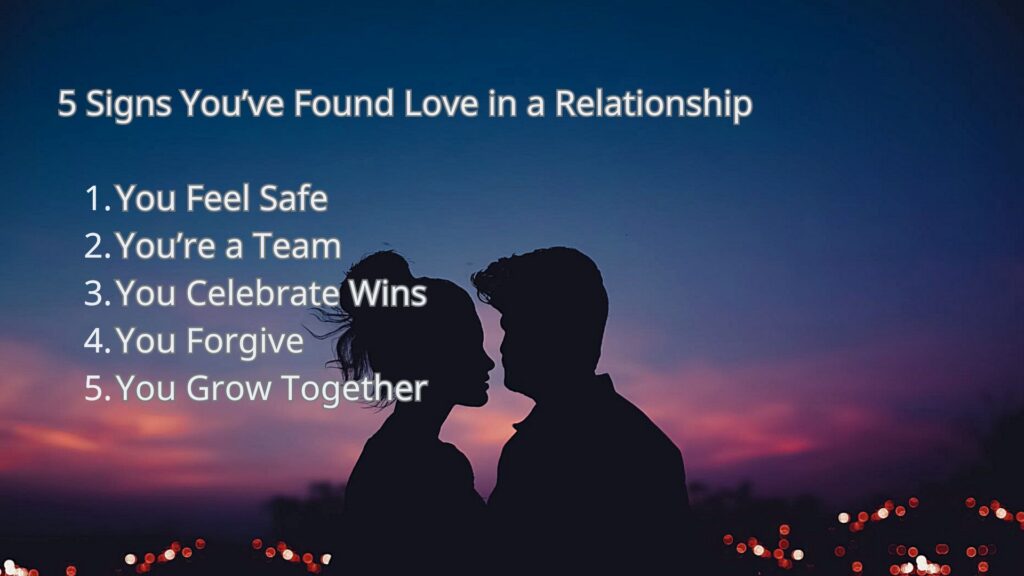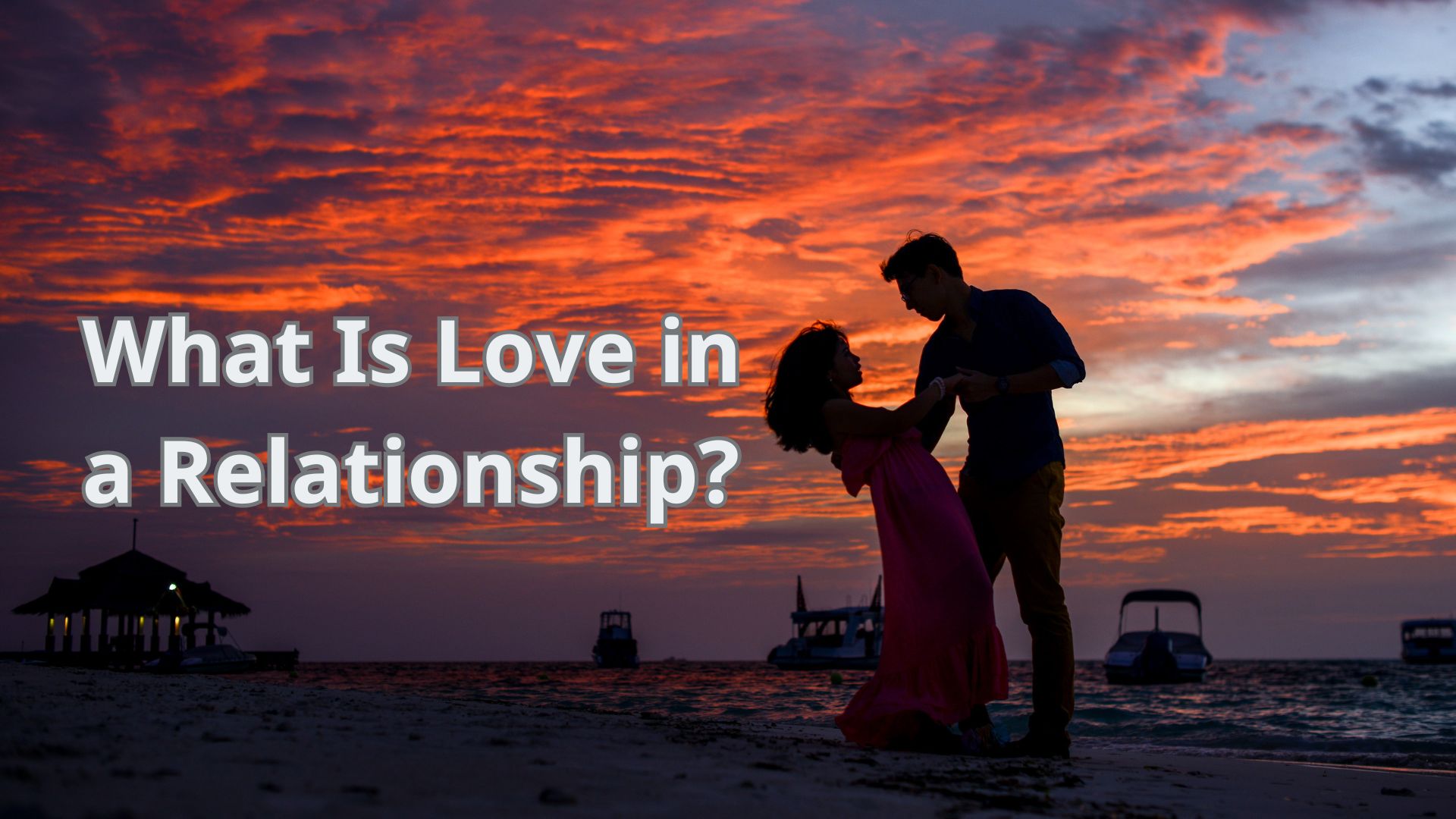What is the definition of love in a relationship? For over 23 years, I have been studying this topic while helping individuals, partners, and families build better and stronger relationships. In my time using Emotionally Focused Therapy (EFT) in my work in Costa Mesa, California, I have seen love in different ways—sometimes complicated, sometimes amazing, but always important. Today, I’ll tell you about my own experience, stories from my clients, and some data to make it more authentic. Whether you’re searching for love on a dating app or working on a long-term relationship, we’ll examine the real meaning of love together.
Love isn’t a spark that just happens—it’s a garden you tend every day. In my therapy, I’ve seen it grow from a single swipe to a lifetime commitment, and trust me, the journey’s worth it. — Dr. Peggy Bolcoa
Love Isn’t Just a Feeling—It’s a Choice
When people think about love, they may imagine feeling nervous or having a special feeling when they first meet someone. Most people feel the most loved when their partner recognizes their emotions. After 20 years of therapy, I’ve learned that love is not just a temporary feeling. Every day, you have to make a decision.
I help couples understand the underlying emotions in their relationships using EFT in my work. Love is present when you decide to listen even when you’re tired, to forgive after an argument, or to support your partner when life gets difficult. Big, extravagant proposals like in the movies are not as important as frequently showing your love through small gestures. A study by the Pew Research Center found that 33% of people in relationships believe that social media helps them to express their love for their partner. That’s showing love through our actions—like posting a nice message or sending a quick text to see how someone is doing.
The 3 Pillars of Love in a Relationship
From my 23 years of working with couples, I’ve seen love in relationships rest on three key pillars: trust, connection, and growth. Let’s unpack each one.
Trust: The Foundation
Without trust, love is shaky at best. I’ve had clients who met online—about 30% of U.S. adults have used dating apps—and they often tell me trust is harder to build when you start behind a screen. You’re texting someone you’ve never met, wondering, “Are they who they say they are?” In my experience, trust grows when both partners are honest and reliable. For instance, if you say you’ll call at 7 p.m., call at 7 p.m. It’s that simple.
Connection: The Glue
Connection is what keeps love alive. In therapy, I’ve seen couples drift apart because they stop sharing—whether it’s their dreams, fears, or even silly daily stories. Most Slavic women on dating sites are seeking long-term relationships, not flings. That tells me people crave real connection, not just surface-level chats. Love thrives when you feel known. One client told me, “Peggy, I didn’t realize how much I needed him to just ask about my day until he stopped doing it.”
Growth: The Journey
Love isn’t static—it evolves. I’ve worked with couples who met through online platforms, and the successful ones embrace growth together. Maybe one partner moves across the world, or they learn a new language to connect with each other’s family. Relationships that last are the ones where both people are willing to adapt. In my practice, I’ve seen this play out over and over—couples who grow together stay together.
Online Dating: A New Frontier for Love
According to Pew Research in 2023, online dating is the way 1 in 10 adults met their partners. Let’s discuss it. I have observed how technology affects modern romance. It is quick, easy, and allows you to connect with new people you wouldn’t meet otherwise. But does it alter the meaning of love?
In my view, online dating amplifies the need for intentionality. When I counsel clients who met on sites like SofiaDate, SakuraDate or LatiDate, I notice love starts with curiosity—swiping right, sending that first message. But it deepens through effort. A 2021 stat showed over 4,000 international marriages between Slavic women and foreign men happened in the U.S. alone. That’s proof online love can work—but it takes more than a profile pic. It’s about building trust and connection, even across oceans.
One downside? The rejection can sting. Research says frequent rejection on dating apps can tank your self-esteem—something I’ve seen in clients who feel “ghosted” after a promising chat fizzles out. My advice? Focus on the matches who show up, not the ones who don’t.
My Personal Experience: 3 Memorable Cases
In my 23 years as a psychotherapist, I’ve witnessed love in all its messy, beautiful forms. Here are three cases that stick with me—and what they taught me about love in relationships.
Case 1: Jim and Maria’s Colombian-American Love
Jim, an American, met Maria from Colombia online. They hit it off, but when Maria moved to the U.S., their families clashed. Her relatives wanted a traditional setup; his wanted equality. In therapy, I helped them see their differences as strengths. “Peggy,” Jim said, “I thought love meant agreeing on everything. You showed us it’s about blending our worlds.” Today, they celebrate both Thanksgiving and Colombian holidays like Día de las Velitas. Love, for them, became a bridge between cultures.
Case 2: Alex and Oksana’s Digital Leap
Alex met Oksana from Ukraine on SofiaDate. He was skeptical—worried about stereotypes of “mail-order brides.” Through counseling, we unpacked his fears, and he learned to trust her intentions. “I thought love online couldn’t be real,” he told me. “But talking to her every day changed my mind.” They’re married now, proving love can bloom from pixels to vows. For me, this case showed how online dating demands vulnerability—just like any relationship.
Case 3: Kevin and Ana’s Humor Hack
Kevin, an American, and Ana from Brazil had a rocky start. She felt he didn’t take life seriously; he thought she was too intense. In sessions, they discovered humor was their love language. “Peggy, laughing together saved us,” Ana said. They’d turn arguments into playful banter, and it worked. This taught me love doesn’t always need heavy talks—sometimes, it’s a shared giggle that keeps you close.
5 Signs You’ve Found Love in a Relationship

How do you know it’s love? After working with hundreds of couples, I’ve pinned down five telltale signs:
- You Feel Safe: You can be yourself—no masks needed. According to Forbes in 2024, about 70% of people who met on dating apps say it led to an exclusive relationship. Safety breeds loyalty.
- You’re a Team: You solve problems together, not alone. I’ve seen this in couples who navigate long-distance or cultural gaps—they lean on each other.
- You Celebrate Wins: Love means cheering each other on. One client said, “When she got her promotion, I felt prouder than she did.”
- You Forgive: Mistakes happen. Love is choosing to move past them. In EFT, I help couples repair ruptures—it’s a game-changer.
- You Grow Together: You’re better because of each other. Most people feel loved when sharing new experiences—growth is key.
Challenges to Love—and How to Beat Them
Love isn’t all sunshine. In my practice, I’ve seen three big hurdles pop up, especially in online relationships:
- Distance: If you’re 5,000 miles apart, love takes extra effort. Video calls and visits help—I’ve seen couples make it work.
- Miscommunication: Texts can’t convey tone. One couple I worked with fought over a misinterpreted “k”—turns out, it was just a typo! Talking it out fixes this.
- Doubt: Online daters sometimes wonder, “Is this real?” A client once asked me, “Peggy, how do I know he’s not catfishing me?” My answer: time and consistency open the truth.
Love Across Generations: What Millennials and Boomers Teach Us
In my 23 years as a therapist, I’ve noticed something interesting: love looks different depending on your age. Millennials—born between 1981 and 1996—and Boomers—born 1946 to 1964—approach relationships in ways that reveal a lot about what love can be. Let’s look at this generational lens and see what we can learn from both.
Millennials: Digital Natives Seeking Authenticity
According to statistics, 35% of people who use online dating are millennials and they are familiar with technology because they grew up with it. They are using apps to find partners from different parts of the world and making authenticity a priority. From what I have observed, they have asked for honesty—64% of 25 to 34-year-olds stated that they would break up with a partner who is not genuine. They want love that’s real, not filtered. Jenna, a Millennial client, found her fiancé on SofiaDate and shared with me, “I needed someone who would be truthful, even when it’s difficult.” The moral of their story? Love grows when people are open and honest, whether online or in person.
Boomers: Stability Over Sparks
Boomers, on the other hand, often value stability. Many met their partners IRL—think dance halls or blind dates—and 54% of those over 55 say companionship beats passion. They’ve taught me love can be steady, not just flashy. I once counseled a Boomer couple, Diane and Tom, married 35 years. After a rough patch, they rebuilt love through routine—coffee dates, shared chores. “It’s not fireworks anymore,” Diane said, “but it’s home.” Their wisdom? Love can endure through quiet consistency.
Bridging the Gap
Here’s the kicker: both generations want connection, just differently. Millennials chase it through screens; Boomers build it over decades. In therapy, I’ve seen couples combine these strengths—like a Millennial learning patience from a Boomer partner. Love isn’t age-bound—it’s a mix of chasing what’s real and holding onto what lasts.
My Conclusions as a Psychotherapist
After 23 years, thousands of sessions, and countless stories, here’s what I’ve concluded about love in a relationship:
- Love Is Active: It’s not something you “fall into”—it’s something you build. Whether you meet at a coffee shop or on SakuraDate, effort makes it real.
- Love Is Special: No two relationships are the same. Jim and Maria’s cultural mashup differs from Kevin and Ana’s laugh-fests, but both are love.
- Love Takes Work: Even the best couples hit rough patches. In my EFT sessions, I’ve seen “impossible” relationships turn into loving ones with patience and guidance.
- Love Evolves: What starts as a swipe can become a lifetime. Many studies have found that online couples have slightly happier marriages—proof that love adapts to how we meet.
As I often tell my clients, “Love isn’t about finding someone perfect; it’s about finding someone perfect for you.” Whether you’re swiping right or meeting the old-fashioned way, love is the courage to show up, the strength to stay, and the joy of growing together.

